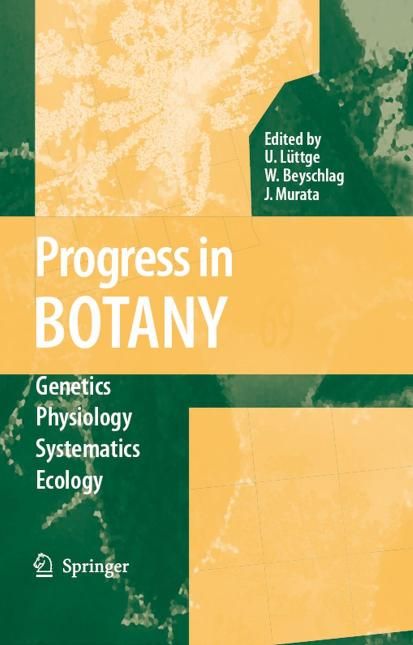

Most ebook files are in PDF format, so you can easily read them using various software such as Foxit Reader or directly on the Google Chrome browser.
Some ebook files are released by publishers in other formats such as .awz, .mobi, .epub, .fb2, etc. You may need to install specific software to read these formats on mobile/PC, such as Calibre.
Please read the tutorial at this link: https://ebookbell.com/faq
We offer FREE conversion to the popular formats you request; however, this may take some time. Therefore, right after payment, please email us, and we will try to provide the service as quickly as possible.
For some exceptional file formats or broken links (if any), please refrain from opening any disputes. Instead, email us first, and we will try to assist within a maximum of 6 hours.
EbookBell Team

4.4
72 reviews

ISBN 10: 3540729534
ISBN 13: 978-3540729532
Author: Ulrich Lüttge, Wolfram Beyschlag, Jin Murata
Front Matter
Review
Ecophysiology: Migrations Between Different Levels of Scaling
Genetics
Variability of Recombination Rates in Higher Plants
Functional Markers in Resistance Breeding
Extranuclear Inheritance: Plastid—Nuclear Cooperation in Photosystem I Assembly in Photosynthetic Eukaryotes
Molecular Cell Biology: Are Reactive Oxygen Species Regulators of Leaf Senescence?
Physiology
Application of Laser-Assisted Microdissection for Tissue and Cell-Specific Analysis of RNA, Proteins, and Metabolites
Plasma Membrane Redox Systems: Lipid Rafts and Protein Assemblies
Subcellular Sites of Environmental Sensing
Oxidative Stress and Salt Tolerance in Plants
Crassulacean Acid Metabolism: a Cause or Consequence of Oxidative Stress in Planta?
Cuscuta spp: “Parasitic Plants in the Spotlight of Plant Physiology, Economy and Ecology”
Ecology
Bayesian Data—Model Integration in Plant Physiological and Ecosystem Ecology
Quaternary Palaeoecology: Africa and its Surroundings
The Application of Novel Optical Sensors (Optodes) in Experimental Plant Ecology
Indirect Defence — Recent Developments and Open Questions
Functional Differences in Soil Water Pools: a New Perspective on Plant Water Use in Water-Limited Ecosystems
Plant Herbivore Interactions at the Forest Edge
Getting Plant—Soil Feedbacks out of the Greenhouse: Experimental and Conceptual Approaches
Back Matter
progress in botany volume 69 progress in botany
progress of botany
processes botany
botany 9th chapter
botany a blooming history (3 of 3)
botany a blooming history (2 of 3) photosynthesis
Tags: Ulrich Luttge, Wolfram Beyschlag, Jin Murata, Progress, Botany, Volume